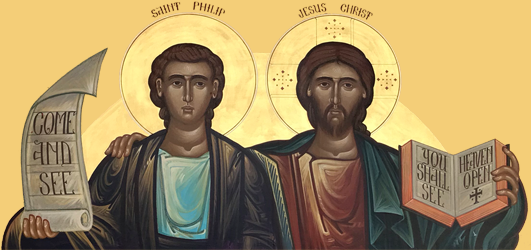What is the Rule of Love?
Last month, we reflected on reading Scripture in and with the “Rule of Faith,” suggesting it is a virtual synonym to the “mind of the Church”—the Church’s living faith as expressed in Her sacraments, worship, creed, and forms of life/practice that together form the indispensable context in and from which to read and interpret Scripture.
This month, let us reflect on another “Rule” that guides the Church’s reading and interpretation of Scripture: the “Rule of Love.”
The “Rule of Love” is most directly connected with the 4th-5th century bishop of Hippo, St. Augustine. In his discussion of Scriptural interpretation in On Christian Doctrine, he says that:
if it seems to you that you have understood the divine scriptures, or any part of them, in such a way that by this understanding you do not build up this twin love of God and neighbor, then you have not yet understood them. (36, 40)
In other words, for the Church, the “meaning” of Scripture can never be considered apart from the effects of our readings of Scripture. Scripture was given to us by God to drawn us into deeper love and communion with God and one another. Any reading of Scripture that diverts from or distorts that true purpose is false. Clearly, then, the Rule of Love is just the flipside of the Rule of Faith/Truth: we cannot love God via Scripture if our love is directed at a false “god”—an idol of our imagination—rather than the one true God and Father revealed through Christ in the Holy Spirit. Likewise, our love of others will not be “true” if it proceeds from idolatry, for idolatry is the root from which comes the laundry list of sins against our “neighbor” recounted in Romans 1-3.
The connection of “Love” and reading Scripture relates not only to the effects of our readings, but to our own inner cultivation of love. St. Athanasius concludes his treatise On the Incarnation with this counsel:
But in addition to the study and true knowledge of the Scriptures, there is needed a good life and a pure soul and the virtue which is according to Christ, so that the mind, guided by it, may be able to attain and comprehend what it desires, as far as it is possible for human nature to learn about the God Word. Without a pure mind and a life modeled on the saints, no one can comprehend the words of the saints. (§57)
Love in accordance with both Truth and Virtue—all of which are Christ Himself—must be both the starting place and the goal of our reading of Scripture.
~ By Reader Justin Gohl

